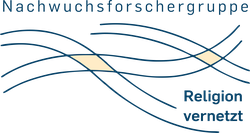Active Muslims in Germany
Boundary work and legitimacy dynamics in the context of social and civic work

Context
Considering the frequently discussed role that religion, particularly Islam, plays in the context of integration, identity and participation, the dissertation project relies on a resource-based approach. Its attention focuses on the potentials and benefits Muslims and Muslim communities supply to society as a whole. Hence, the subjects of the study are Muslims in Germany who contribute to common welfare through social and civic involvement. A special focus traces (1) the faith-based motivations of the actors and (2) their agency related to their embeddedness in social networks, which shapes the commitment and is in turn shaped by the involvement of the actors. The underlying social constructivist approach (Berger/Luckmann 1969) is based on the idea that social reality is perpetually reproduced by human action in a dynamic process. Thus, no fixed and unchangeable entities exist. Such a paradigm counteracts essentialist ideas of, e.g., Muslims and their faith, as well as culturalistic thinking, e.g. concerning a country of origin. Furthermore, the project aligns with theories of social capital (Bourdieu 1983; Putnam 2000; Nan Lin 2001) where actors gain access to resources (support, recognition, knowledge, job opportunities, etc.) by being embedded in social (and religious) networks. This actor-oriented logic justifies the empirical approach to the theoretical research question of how religious worldviews and social embeddedness mutually interact.
Research question
The project examines the main question of the ways in which Islamic social ethics influence social and civic activities and what consequences such activities have, in turn, on social ethics as well as on social relations. Various boundary making dynamics, which thus legitimize an individual in his actions, are relevant in terms of their being affiliated with different social circles. Socially and civically active Muslims are analysed on two levels: First, on an individual semantic micro-level and, second, on a more functionsalist meso-level. Summed in the first approach is the individual religiousness and the related legitimizations for action based on social ethics as well as non-religious motivations for involvement. The second focuses on relations in and beyond social and religious networks and the resulting opportunities for action are explored.
Methodological setting
Through a combination of different methodological approaches, the qualitative empirical study gains new insight about dynamic opportunities for action for active Muslims in Germany. The sample of socially and politically active Muslims includes people who, firstly, identify with a form of Islam, who are secondly embedded in a religious community and who are, lastly, committed in social and civic domains beyond their religious community (youth work, citizens’ initiatives, associations, federations, trade unions, possibly political parties as well, others). Another condition is an exchange with other Muslims as well as Non-Muslims about questions of faith and commitment. In narrative interviews I explore how social and civic work in Germany is performed in an Islamic way and to what extent Islam is activated as a motivator, as an interpretation and a legitimization level. In the interviews, I ask about individual religiousness, about individual characteristics (specific personal traits) to find out more about the interrelation between religiousness and commitment. The second approach is an ego-centered social network analysis. Together with the interviewees, we draw digital network maps of their different relations and dependency types. This pragmatic relational perspective allows findings about the embeddedness of the actors in their social networks, about their boundary making strategies (Wimmer 2008; Alba 2005; Lamont/Molnár 2002) and the operating dynamic between different social contexts. Data collection as well as data analysis relies on principles of grounded theory (see Strauss; Strübing 2008), as well as thematic coding (Kuckartz 2010, Hopf and Schmidt 1993) and qualitative social network analysis (Hollstein 2006). Interrelations between the social embeddedness and the individual legitimatory background of the actors lead to a typology of socially and politically active Muslims in Germany.

